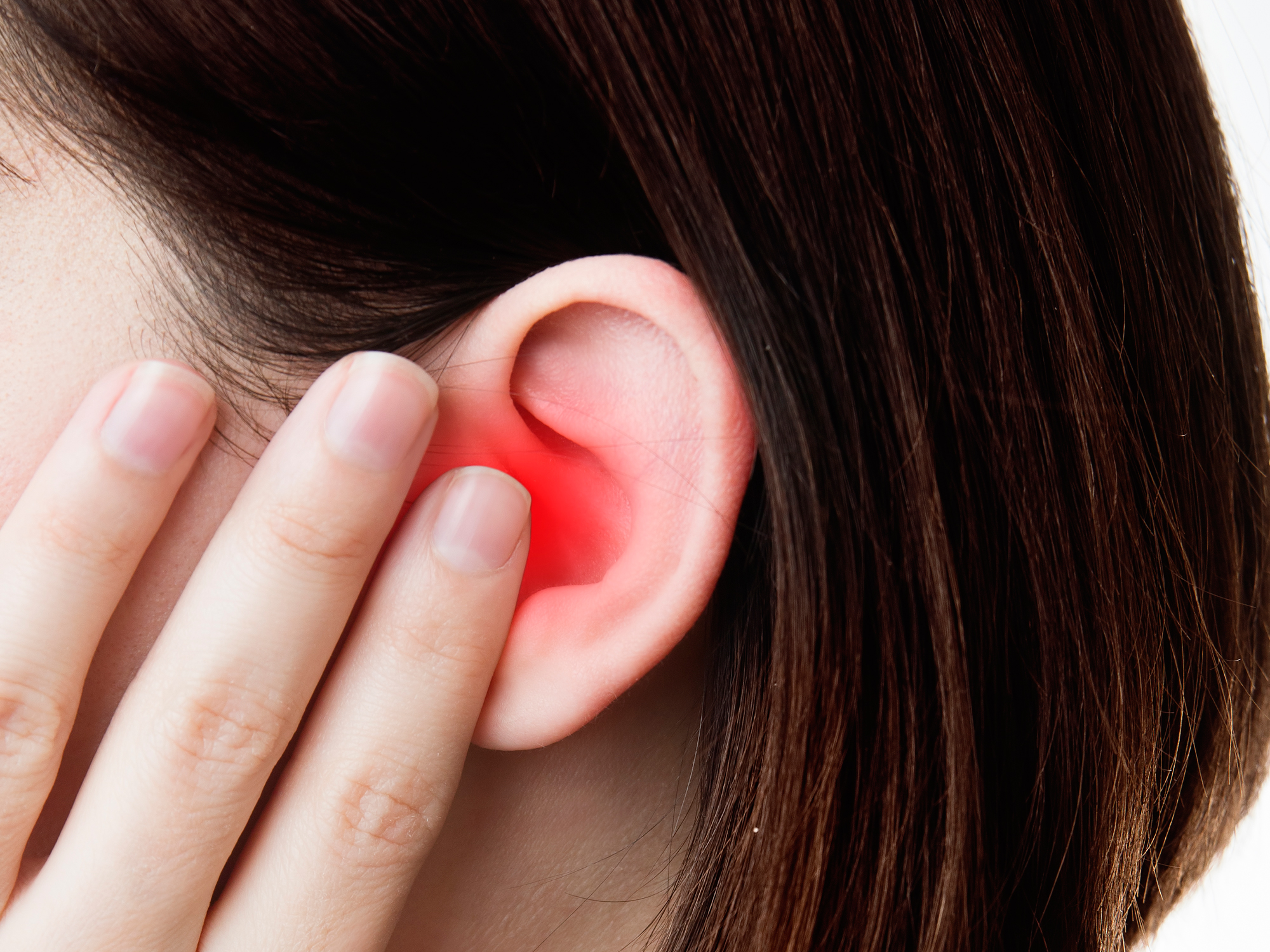Get Easy Health Digest™ in your inbox and don’t miss a thing when you subscribe today. Plus, get the free bonus report, Mother Nature’s Tips, Tricks and Remedies for Cholesterol, Blood Pressure & Blood Sugar as my way of saying welcome to the community!
The natural way to turn down tinnitus

You’ve probably experienced ringing in your ears at some point in your life — whether you got pool water stuck in your ear, sat too close to a speaker at a loud concert or got an ear infection. And this ringing is pretty annoying. In fact, if it goes on for too long, it’s enough to drive you crazy…
Fortunately, for most people, ringing ears (otherwise known as tinnitus) will clear up in a few minutes, a few hours or a few days. But for some, tinnitus is a chronic or reoccurring problem.
Chronic tinnitus can be caused by a lot of things:
- Age-related hearing loss
- Hearing damage from loud noises
- Earwax buildup
- Pretty much any ear disorder
- Medications
- Injuries to the ear or head
- Nerve problems
- Brain tumors
- Diseases like anemia, thyroid disease and multiple sclerosis
- High blood pressure
Really, the list of potential causes is endless. And sometimes people never figure out the cause of their chronic tinnitus…
They just suffer in silence (or a lack thereof), as chronic tinnitus messes with their thinking, emotions, hearing, sleep and concentration. But researchers are uncovering new treatments for tinnitus all the time. And their latest discovery sounds pretty promising…
Researchers in Brazil conducted a small study to see how the hormone oxytocin affected people with tinnitus.
In case you don’t know, oxytocin (also known as the “love hormone”) is the hormone your body releases when you kiss someone, have sex, give birth or breastfeed. It’s the ultimate lubricant for loving human interaction and bonding. But it can also relieve the annoying ringing of tinnitus…
In their study, researchers had 17 people with tinnitus take two puffs of an oxytocin nasal spray in each nostril or two puffs of a placebo. After 30 minutes and then again after 24 hours, participants were asked to assess their tinnitus symptoms. Amazingly enough, the participants who used the oxytocin nasal spray experienced a substantial reduction in their tinnitus symptoms. And it happened almost immediately. In some cases, their tinnitus disappeared altogether.
These results are pretty remarkable. And if researchers have this level of success in larger clinical trials, they may have a tinnitus cure on their hands. But a few words of caution…
Even though oxytocin nasal spray is available for purchase, its long-term side effects are still unknown. Some possible side effects are abnormal heartbeat, abnormally low blood pressure, high blood pressure, allergic reactions, breathing difficulty, nausea and vomiting. So you’ll probably want to play it safe and wait until more information comes out about oxytocin’s effect your body before you start taking it.
But in the meantime, you can try other safe and effective tinnitus remedies like:
- Taking two tablets of standardized gingko biloba extract three times per day with meals. Gingko biloba increases blood circulation in the head and neck, which may alleviate tinnitus. Try this for at least two months.
- Trying a CoQ10 supplement. In one preliminary trial, tinnitus sufferers who had low levels of CoQ10 in their blood were able to significantly improve their tinnitus by taking 100 mg of CoQ10 three times per day for 16 weeks.
- Cutting out caffeine, alcohol, loud noises and anything else you’ve noticed aggravates your tinnitus.
Sources:
-
“Tinnitus.” MedlinePlus. https://medlineplus.gov. Retrieved September 24, 2016.
-
“Tinnitus.” National Institute on Deafness and Other Communication Disorders. https://www.nidcd.nih.gov. Retrieved September 24, 2016.
-
“The ‘love hormone’ may quiet tinnitus.” Medical Xpress. http://medicalxpress.com. Retrieved September 24, 2016.
-
“Natural Cures for Ringing in the Ears?” Dr.Weil.com. http://www.drweil.com. Retrieved September 24, 2016.
-
“Coenzyme Q10.” University of Michigan Health System. http://www.uofmhealth.org. Retrieved September 24, 2016.












